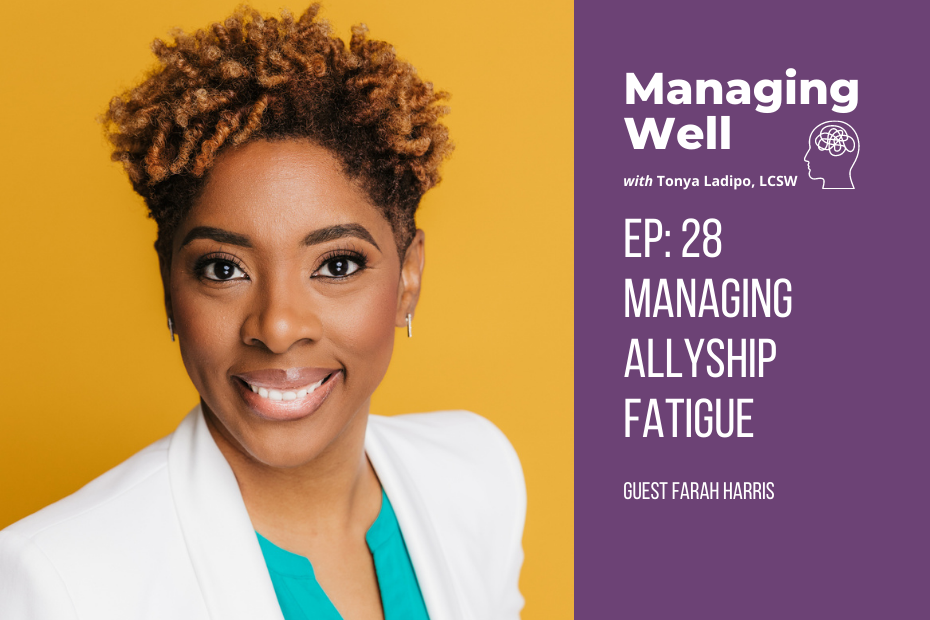Guilt, shame, and uncertainty about the right thing to say or do has been described as allyship fatigue when it comes to learning the history and day-to-day experiences of people from underrepresented communities. As a leader in your organization, do you avoid the tough conversations, or do you lean into them?
In this episode, we chat with psychotherapist, author, and workplace wellness expert Farah Harris, MA, LCPC, about how allies can pause to reflect and avoid creating additional harm.
Content Warning: This episode includes a conversation about sexual abuse at the timestamps: 20:00-24:23 and 27:45-28:45.
Key Takeaways:
- “We have to be patient and gracious but steady in our [allyship] work, so we can build endurance.”
- There was a surge in allyship after the murder of George Floyd. Years later, there’s fatigue and a lull in allyship though it is still very much needed.
- The systems and -isms (e.g. sexism, racism, ableism, and more) that create the need for allyship are overwhelming and often feel like it’s too much to handle. It is too much. It is too much for those enduring the injustices and it is too much for those not experiencing the harm directly. Yet, allyship actions are necessary to address the harm.
- Allyship and advocating for others requires continual self-reflection and action. When it becomes tiring, pause. Take a breath but don’t quit.
Reflection Questions:
- Learning about injustices and new perspectives on what you ‘knew to be true’ can be shocking and even disorienting. What do you do to regulate your emotions and reactions to continue to take in new information rather than dismiss it?
- Consider how you showed up as an ally, professionally or personally, in Spring 2020. Has your behavior changed since then? If so, what specifically has changed? What one action do you want to restart?
- What did your team or organization do to practice allyship in 2020? Have the actions continued since then? If not, describe one action that would be beneficial to resume in the workplace.
Action Items:
- Choose three actions that you will continue or (re)start as an ally. Write them down and keep it visible. Name a person you will share this with for accountability.
- Create a plan to manage allyship fatigue. List three strategies that support you in pausing when necessary rather than stopping the work altogether.
- Connect with your organization’s ERGs. Ask about their current priorities and how you can practice allyship to support their initiatives.
Additional Resources:
- Diversity Fatigue, Addressing Burnout in DEI Efforts
- Fighting DEI Fatigue, The Critical Need For Allyship
- The Color of Emotional Intelligence: Elevating Our Self and Social Awareness to Address Inequities
The Managing Well podcast, with host Tonya Ladipo, talks about wellness in the workplace with people leaders, mental health professionals, HR experts, and more. Click the link to subscribe to the podcast and get the latest episodes.




